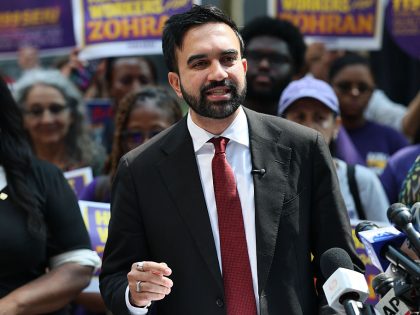
Why Stonewall Matters Today
Stonewall wasn’t just an uprising for LGBT rights — it was also part of a broader movement that fought racism, war, and poverty. To go beyond today’s tepid gay activism, we need to remember its anti-capitalism.

Stonewall wasn’t just an uprising for LGBT rights — it was also part of a broader movement that fought racism, war, and poverty. To go beyond today’s tepid gay activism, we need to remember its anti-capitalism.

The likes of Hillary Clinton have tarnished the name of feminism, associating it with neoliberalism and anti–working-class politics. For Nancy Fraser, feminism has to be about overthrowing corporate power, not giving it a female face.

Just in the last week, the Hungarian government has banned gender reassignment, legislated jail terms for fake news, and put government stooges in control of theaters. Viktor Orbán’s administration has done all this in the name of the response to coronavirus — exploiting its emergency powers to silence dissent and demonize minorities.

Cornel West talks to Jacobin about what the Bernie Sanders campaign represented, what its failure means, and why Democrats think they can win over black and brown voters with just “symbolic decorative changes.”

The legacy of Margo St James, the trailblazing sex worker organizer who died earlier this month at 83, is more than her brazen personality, more than her bold and flamboyant tactics. She recognized that economic exploitation and gendered harassment are inextricably linked to police violence.

In his new book, Ben Burgis argues that it’s a mistake for leftists to participate in moralistic “canceling” or retreat into a fringe subculture. We have to create an environment that feels welcoming to millions of people who want to change the world.

Jordan Peterson keeps running his mouth on Marx and Marxism, but a new conversation with Kyle Kulinski shows that the Canadian neo-reactionary has forgotten what little he ever knew about the subject.

Rishi Sunak’s Tory Party is on a path toward electoral calamity. The Tory meltdown is the culmination of a deep-rooted, long-term crisis that was temporarily staved off by the Brexit referendum but has now returned with a vengeance.

Teamsters president Sean O’Brien headlined the RNC’s opening night and praised two of the party’s leading snake-oil salesmen: vice presidential candidate J. D. Vance and Missouri senator Josh Hawley. The party of billionaires couldn’t be happier.

Zohran Mamdani is a longtime member of New York City Democratic Socialists of America, and the organization played a key role in his victory. We spoke to NYC DSA’s cochairs about how it happened.

A radical middle-class insurgency has stormed the Republican Party.

Three socialist feminists reflect on the Women's March and what comes next in the movement to resist Trump.

Robert Brenner and Bhaskar Sunkara on how the Left can seize the momentum and build a majority.

Pamela Anderson spoke to Jacobin and philosopher Srećko Horvat about the protests in France, the crisis in the European Union, and her own activism.

If the global economy comes skidding to a halt sometime soon, the results for the vast majority of people around the world would be miserable. The Left needs to be prepared for it.

The AMLO government has enacted modest reforms to help struggling renters. But more radical solutions are needed to solve Mexico’s housing crisis. A report from Oaxaca.

When the Canadian parliament reconvenes this month, the Liberals will likely need the New Democratic Party to retain power. The center-left NDP’s support should not come from petty electoral calculation, but from an understanding that bold action is needed by both the country and the party.

This morning, Azerbaijan and Armenia agreed to a cease-fire after almost two weeks of fighting over the disputed Nagorno-Karabakh region. But like after the last truce in 1994, there can be no enduring peace without a political solution — one that overcomes the violent legacy of the Soviet collapse in the Caucasus.

Over the last thirty years, resource-rich Mexico has had its energy grid handed over to corporations and foreign multinationals — when it should be in the hands of the Mexican people. Andrés Manuel López Obrador is trying to reverse that trend by bringing back the nation’s long-debilitated public energy sector.

Jordan Peterson claims to slay sacred cows and challenge prevailing orthodoxies. But what he’s really offering is a minor twist on tried-and-true conservatism — defending existing hierarchies and opposing the democratization of political and economic life.